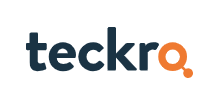
It’s no secret that pharmaceutical and clinical trial industries are reluctant to adapt to technological changes. This may, at least in part, reflect the high regulatory overhead in drug development, particularly in oncology trials. Any new processes need to be painstakingly assessed to ensure that replacing tried and tested processes doesn’t result in any new risks.
Despite this, many other highly regulated industries have adopted a digital approach – which is, in the end, all about improved efficiency – and where we increase efficiency, we are also likely to be more compliant. After all, other industries that are exceptionally highly regulated, such as banking, have fully adapted to digital transformation. And with COVID-19 changing the way most industries operate, it’s time for the pharmaceutical industry to belatedly do likewise.
For Brendan Buckley, chief medical officer at clinical trial software provider Teckro, the slow pace of digital adoption is holding drug development back.
“It is astonishing how the industry still accepts inefficiency,” he says. “The end-to-end process of clinical trial data collection is still largely manual and labour intensive. And while electronic processes such as EDC and ePRO have penetrated deeply, processes such as monitoring still largely depend on the same on-site manual procedures as they did decades ago.”
Paper protocol in oncology trials
A good example of a relic that is still central to clinical trials is the printed paper protocol. As we know from other industry experience, paper is often inaccessible when most needed by virtue of it physically being stored in a fixed location. And it can be out of sync with current versions, which can result in research personnel consulting an outdated version of the study protocol. In the clinical trials sphere, sticking to the “safe approach” of distributing paper protocols is a known driver of non-compliance, and in the USA, the FDA finds more faults with clinical trials from lack of adherence to the protocol than with any other errors.
Communication among sites, monitors and sponsors has mostly moved into the email age, but, Buckley explains: “Email itself contributes to issues, as important emails can be missed or may be delayed in opening by the recipient. On top of that, using informal communication channels for what should be regulated communications can leave a difficult or even invisible audit trail.”
In addition to the communication issue, clinical trial protocols continue to grow ever more complex, particularly for oncology studies. There is on average about a 10% annual inflation in the number of procedures and tests needed. With more procedures and more datapoints to capture, it can be a daunting task for research personnel to meet all of the requirements specified in the protocol.
Simple efficiency
Teckro simplifies the tasks of site staff, CRAs and study teams with its digital engagement platform that connects sponsors, monitors, and research sites. Instantly searchable access 24/7 to study documents, including only the correct version of the protocol, removes one of the main reasons for protocol deviation. Communication is streamlined, relevant and real-time so that research personnel have the answers directly from their mobile devices to make the best informed decisions. Every communication can be tracked and made audit-ready. Everything is securely accessible right there on a smartphone or other mobile device.
According to The Journal of the National Cancer Institute, only eight per cent of adults diagnosed with cancer are enrolled in oncology studies [US data only]. In recent years, it is clear that trial participation offers cancer patients treatment options that are otherwise unavailable to them. One of the reasons for this is because only a minority of physicians undertake to be investigators in clinical trials, showing that there is a pressing need for physicians to be more aware of clinical trials, and also to have more varied investigators lead clinical trials. Making it easier for physicians to commit to oncology trials, the benefits of clinical research can be opened to more patients.
“The key to clinical trial recruitment starts with the physician,” Buckley explains. “If we make it easier for physicians to be investigators in clinical trials, they in turn are in the best position to advise their patients on the options for best possible care based on their cancer diagnosis. Often clinical trials are the best form of treatment for cancer at certain stages, and we are seeing dramatic advances with oncology drugs that are improving quality of life and extending survival for cancer patients.”
Teckro’s raison d’etre is a digital approach, so it’s no surprise that the company has made a major contribution to making clinical trials simpler and easier. One of the tools is Teckro Search, a clinical trial search engine that provides research staff and study monitors with immediate and accurate answers from current clinical documents using their smartphones. Teckro Connect provides a direct line for research personnel to send auditable messages in real-time to study team experts to confirm a decision or get further instruction to properly deal with a given situation. Teckro Engage allows study teams to deliver relevant study updates to those that need them and to track their receipt. And Teckro Survey allows study teams to quickly capture direct site feedback.
“The digital revolution is arriving late for clinical trials, but ‘going digital’ is a crucial step towards a safer and more efficient environment,” Buckley concludes.
And in an industry where the output can often be a matter of life and death, who can afford to get left behind?


